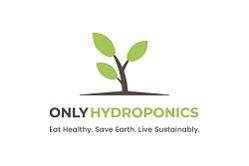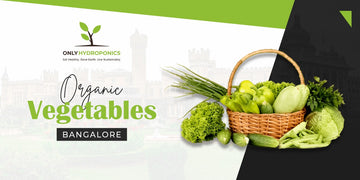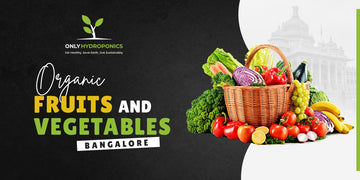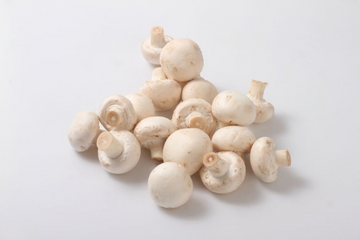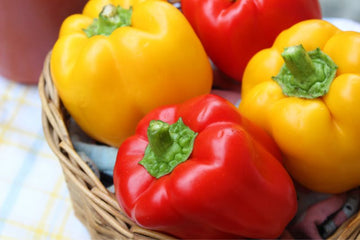Grow the Best Veggies on Your Own for Hydroponics
by Kamal Kishor Singh on Feb 11, 2022
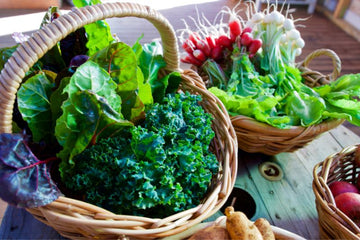
Hydroponics is a technique of growing plants without soil and without the limitations of space and climate. In the traditional farming system, plants depend on soil to obtain all nutrients needed for their growth.
In contrast, a hydroponic garden at home provides all of these nutrients without involving sunlight, soil, extra labour, allowing farmers to benefit from efficiencies and to reap large produce yields for fast growing Hydroponic plants.
There are few reasons why growing veggies on your home using Hydroponics :
1. Hydroponics saves water :
Irrigation is seen as a savior by many a farmer all over the world. To be perfectly clear in our opinion, irrigation has allowed man-kind to scale food production and feed more people, but water conservation is also very important for fast growing Hydroponic plants.
Traditional agriculture farming uses around 80% of the surface and groundwater compared to hydroponics, which uses only 10% of that under controlled conditions.
Water keeps circulating within the system allowing plants to absorb water necessary for active metabolism, while surplus water moves to the reservoir or storage tank to be cycled all over again.
Obviously, there is no leaching, harmful runoff and little evaporation of water due to the finest and state of the art technologies that work under automated conditions.
The efficiency of a hydroponic system may save up to 90% of water. Thus, this type of system can be installed at a place where source water is not fit for growing agriculture crops or you have a limited supply of water for general farming.
On the other hand, an added benefit is the enhanced production capacity of your hydroponic indoor garden system with a limited resource and it gives best veggies using Hydroponics.
2. Advantage of soil- less gardening
Every plant grown using open agriculture farming, ties up a certain amount of land for a long duration (usually through the growing season). With hydroponics, one has multiple options of growing plants, which includes vertically.
Thereby drastically reducing the land requirements needed to grow crops. Crops can be grown in areas having limited soil, water-logged soils, snow-capped soil, nutrient-poor soil, contaminated soil or where the soil doesn’t exist at all.
Limited space in the corner of your back yard, front yard, alleyway, etc. can produce a large quantity of food under controlled conditions otherwise unfit for growing anything green.
This includes being able to establish a hydroponic farm in commercial and industrial zones, where farms and gardens are not normally found in the city.
In addition, hydroponics gives the advantage to even the most remote and isolated places and allows the residents to grow their own food all year long, regardless of the weather or soil conditions.
3. Improvisation of quality produce
Growing hydroponically improves the quality and taste of produce, because the system utilizes quality of nutrients and clean water under controlled environment without pesticides or herbicides.
In addition, because hydroponics drastically reduces the supply chain, the greens grown locally in a hydroponic system will often times taste much better than those that have traveled thousands of miles from a farm to the grocery store.
This difference, of course, is much more noticeable and pronounced in geographical locations farthest away from the point of production of food. For the same reason, hydroponic vegetables retain more nutrition as nutritional profile starts to degrade as soon as the vegetables are harvested.
The produce you harvest from your hydroponic farm will always be fresh, healthy and delicious, clean and free of dirt, pests, and diseases. This makes hydroponic produce oftentimes not only fresher, but also safer to eat.
4. No Usage of Pesticides and Herbicides
Conventional farming needs excessive use of insecticide and herbicides for successful crop growth due to their exposure to multi-climatic conditions that support different pests and weeds infestation.
In the case of a hydroponic garden, no soil is used, so there are no flare-ups of weeds and pest attacks. As a result, hydroponic crops are grown without these harmful agents.
This is highly beneficial to the farmer that can sell produce without pesticide residue, which is otherwise seen as detrimental to consumer health. This is the real advantage for the people who want to eat healthy and clean food without pesticide residue.
Likewise, farmers can easily grow non-GMO crops, because there is no need for pesticides and herbicides. Therefore, organic and non-GMO seeds germinate beautifully and grow into lush vegetables in a hydroponic system.
5. It is Environment friendly
Clearing of forests and pastures for agriculture farming to feed the increasing population worldwide is creating a threat to the ecosystem. Hydroponics helps by lessening this impact.
It doesn’t emit toxins to the nearby environment and performs better under limited space to feed the maximum number of individuals compared to crops grown in soil.
No fear of land erosion, no fear of harsh climates, no use of big water reservoirs makes hydroponics a popular form of growing greens.
It also eliminates the need for transporting greens thousands of miles, which puts a tremendous load on the environment. In addition, many of our farmers are also not using packaging, further making hydroponic farming environmentally friendly.
